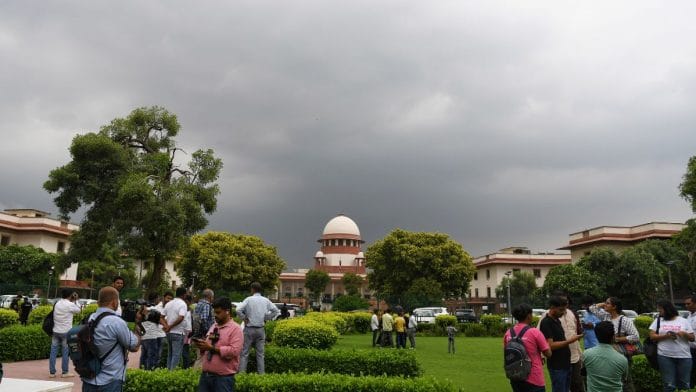New Delhi: The police must inform the accused of the grounds of arrest, and a failure to do so would vitiate not only the arrest but also the remand given on court orders, the Supreme Court held Friday in a judgment that raised the bar for arrests in criminal cases.
A bench of Justices Abhay S. Oka and N. Kotiswar Singh said that a citizen’s right to be informed about grounds of arrest is mandatory under Article 22(1) of the Constitution. If its violation is established, the arrested person must be released immediately. The SC said bail would be granted in such cases even if there are statutory restrictions on the grant of such bail.
According to Article 22(1), “No person who is arrested shall be detained in custody without being informed, as soon as may be, of the grounds for such arrest nor shall he be denied the right to consult, and to be defended by, a legal practitioner of his choice.”
The SC added that non-compliance with Article 22(1) would violate the fundamental rights of the accused promised under it and a breach of Article 21, which guarantees personal liberty, and that would entitle the accused to bail.
Though non-compliance would vitiate the arrest, it would not invalidate the charge sheet or the trial. However, the filing of the charge sheet would not legally justify an arrest.
The bench fastened a liability on the magistrate to determine compliance with Article 22(1) when an arrested person appears before the magistrate. If convinced of the violation, “it is the duty of the court to, forthwith, order the release of the accused”, the SC said.
The court further clarified that the accused should have sufficient knowledge of the basic facts, constituting the grounds of arrest, in a language that effectively communicates that to the accused. The mode and method of communication must achieve the object of constitutional safeguard.
In case the arrested person did allege non-compliance with the constitutional requirements, the burden will always be on the investigating officer or agency to rebut and prove compliance.
The landmark SC judgment came on an appeal filed by fraud accused Vihaan Kumar, the CEO of Games Kraft Technologies, challenging the rejection of his writ petition by the Punjab and Haryana High Court. The petition had alleged illegal arrest, seeking CCTV footage of his custody.
The HC had accepted the Haryana government submission, which said the police had not violated the 24-hour rule to produce Kumar before the court and that Kumar was informed about the grounds of arrest.
The case
Kumar argued before the SC that the police did not communicate the grounds to him. In its defence, Haryana Police claimed to have informed his wife and denied flouting the requirement under Article 22(1).
Allowing Kumar’s appeal, the SC clarified that informing the relatives of an arrested person does not exempt the police or investigating agency from their legal or constitutional obligation to inform the accused about the grounds of arrest. Therefore, informing the wife could not be termed as following the law under Article 22(1), the court said.
The court disagreed with the state’s argument that giving details about the arrest in the remand report, arrest memo, and case diary would fulfil the requirements under Article 22(1). It said such documents are merely records of the fact of the arrest, not the reasons behind it.
“The stand taken before the High Court (by the state) was that the appellant’s wife was informed about the arrest. Information about the arrest is completely different from the grounds of arrest. The grounds of arrest are different from the arrest memo,” the court observed.
“The arrest memo incorporates the name of the arrested person, his permanent address, present address, particulars of FIR and Section applied, place of arrest, date and time of arrest, the name of the officer arresting the accused and name, address and phone number of the person to whom information about arrest has been given,” it said.
“We have perused the arrest memo in the present case. The same contains only the information stated above, not the grounds of arrest. The information about the arrest is completely different from information about the grounds of arrest. Mere information of arrest will not amount to furnishing grounds of arrest,” the court held.
Justice Singh wrote a three-page separate but concurring opinion, elaborating on the non-compliance of Section 50 of the erstwhile Criminal Procedure Code. The penal provision, he said, mandates informing the arrested person about the arrest and location of detention—which, he found, was not done in the said case.
He added that Section 50 of CrPc ensures the access of the detained person to legal recourse and prevents their disappearance. Failure to comply with this law can also render the detention illegal.
(Edited by Madhurita Goswami)






